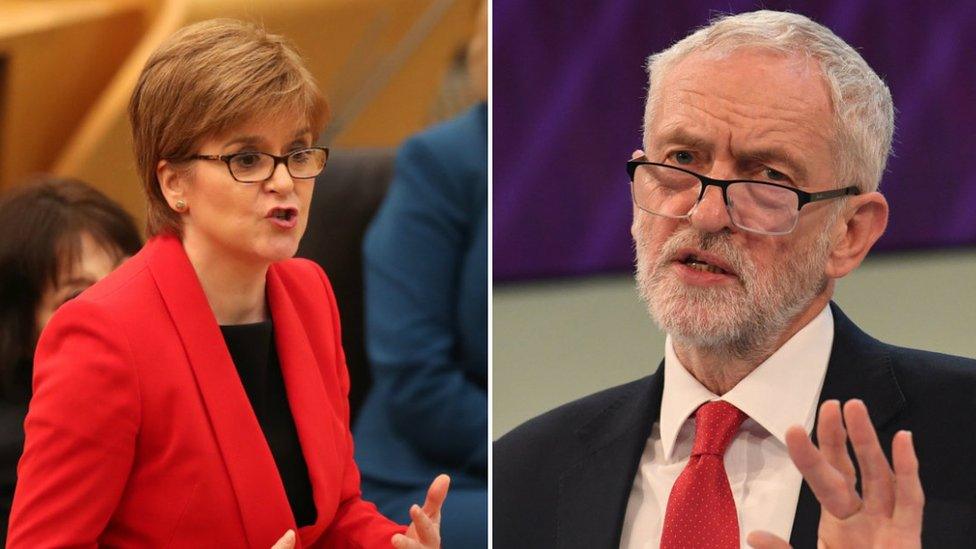Questions without easy answers
- Published
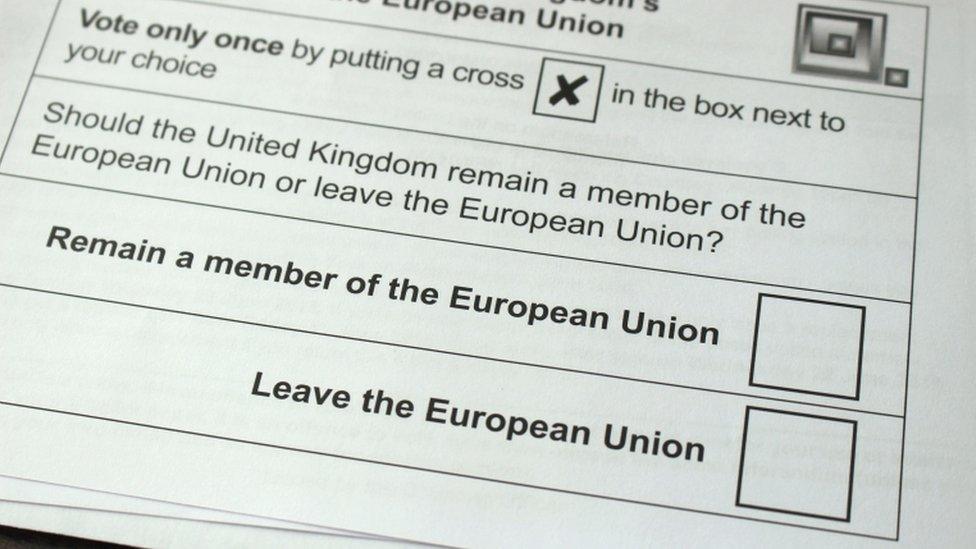
What might the question be if there were a second EU referendum?
So are we to have a further referendum? Of the European variety, that is. Perhaps we might ponder a little about indyref2 but, for now, let us focus upon Brexit.
There is an obvious problem with a further EU poll. Which is that neither the prime minister, nor her potential Tory successors nor the leader of the opposition in the Commons favour such a move.
But, of course, these are febrile times. Leaders are not solely in command. The wider political environment is, to use the word of the month, nebulous.
The first minister has said today that a second referendum is closer than ever. She cites the argument that the Prime minister is no longer in charge of events.
In these circumstances, the Commons has arrogated to itself the power to determine strategy in the event that the "meaningful vote" results in a purposeful and voluble no.
So, perhaps, a route might be found around the Commons obstacles. After all, it is currently the case that no solution appears able to command majority support.
Therefore, let us put that to one side for a moment. Let us consider instead the question which might be asked.
Wording and phrasing matters. Remember that excellent episode of "Yes Minister" where Sir Humphrey demonstrates to his hapless junior, Bernard, how a plebiscite can be manipulated to generate competing results.
Perhaps we might first consider the purpose of a referendum in a parliamentary democracy. It is, arguably, to obtain a popular mandate on a matter of significance, in order to guide politicians as to their future actions.
So it has two elements. It has popular consultation. But it also has related parliamentary and governmental action. Both are required if the event is to be more than an ephemeral opinion poll.
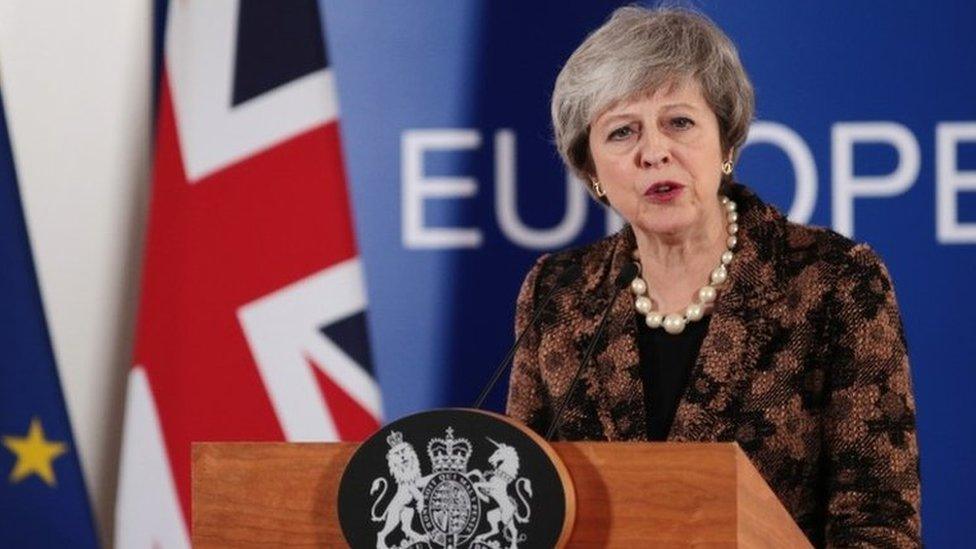
Theresa May has spoken out repeatedly against having another public vote
In the case of the Brexit referendum in 2016, the UK government was seeking a mandate for the UK's future relations with the European Union.
It was the "in or out" choice promised by David Cameron in order to still disquiet within his own party and to see off the perceived challenge of UKIP.
One might question how the first element of that dual aim - the pacification of the Conservative Party - is going. But such was the origin of the events we witness today.
Whatever the cause, however, a referendum must have an outcome which can be pursued by the government and/or parliament which caused the question to be asked.
It cannot be too narrow to restrict action or too broad to leave that action uncertain.
For example, one might conceivably ask at the moment: "Do you think the UK's politicians, including but not solely the prime minister, have made a complete guddle of Brexit?"
It would be possible to envisage a fairly resounding vote of assent to that proposition, at this precise point. But it would take us nowhere.
It might provide transient content to an irritated public but it would not result in any action which resolves the current conundrum, which is that the UK is presently scheduled to leave the EU on the 29th of March. Yes, in three months.
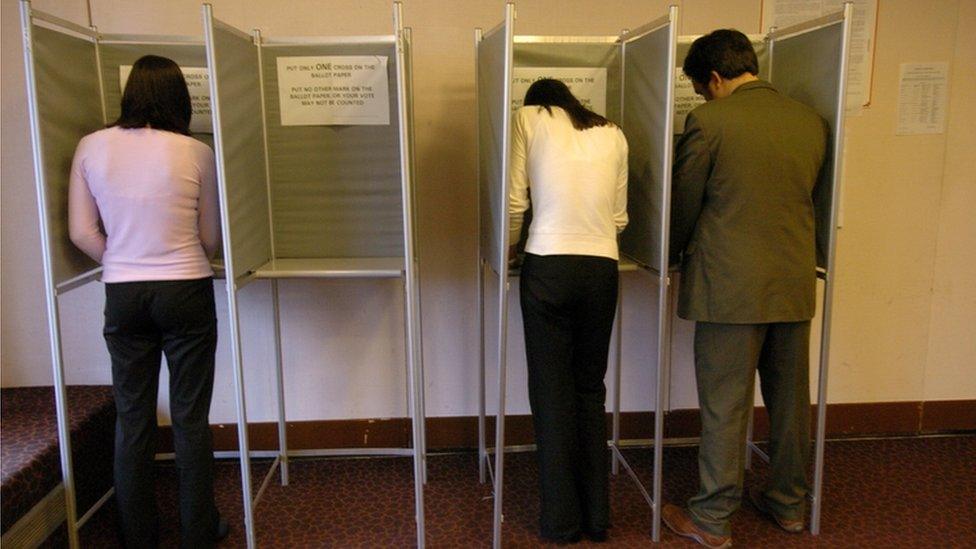
Forecasting the question for another referendum is almost as tricky as forecasting the likely result
So what might we ask? I suppose we could, theoretically, ask the simple Leave or Remain question which was posed in 2016.
But matters have moved on since then which is part of the motivation behind the self-styled People's Vote campaign. Say the vote is again to Leave. Leave on what terms? Those negotiated by the prime minister?
More would appear to be required. So perhaps one might postulate the PM's deal - and place that in contradistinction to an alternative.
How about: "Do you want the UK to leave the European Union on the terms negotiated by the prime minister? Or do you prefer the UK to leave without a negotiated deal?"
That is feasible. One snag might be that relatively few actively advocate No Deal. Some of the more enthusiastic Brexiteers say "let us just leave and be done with it". Others say that No Deal might be problematic, at least initially, but it is preferable to the PM's terms.
However, others hanker after an alternative deal. And others still want to reverse Brexit entirely. Given that, it is perhaps arguable that there would be insufficient support for PM's Deal versus No Deal.
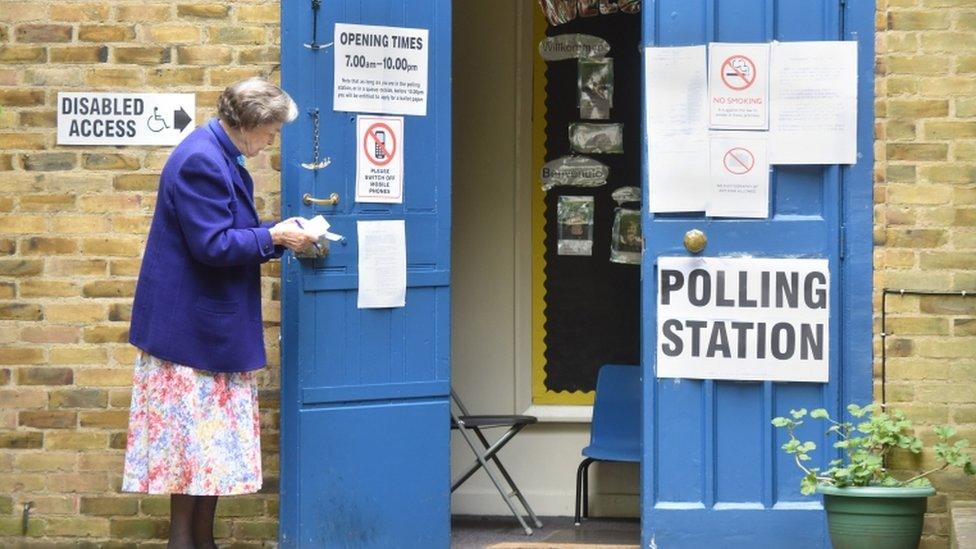
Would the referendum be a nation-wide game of Deal or No Deal?
Is it possible, then, to put the PM's deal up against an alternative negotiated scenario? I would suggest not.
As things stand, there is no clear, single agreement which would carry support in the Commons - and, crucially, would be capable of convincing the remaining EU27 who are demonstrating evident exasperation with the entire affair.
There is no single, precise, written, minuted document to place against the existing 585 page deal and the concomitant political agreement.
Some might say that was an underlying flaw in the Brexit referendum in the first place. Unlike the independence plebiscite in 2014, the Brexit poll was not founded upon a composite, detailed proposal for departing the European Union.
Now it could also be argued that the independence White Paper advanced by the Scottish government would not represent the definitive, final deal, once negotiations with the UK government had taken place.
That point was discussed vigorously within the 2014 campaign. In particular, it was asserted then that the Scottish government was wrong to insist that Scotland would stay in the EU.
The only way to guarantee that, it was said, was for Scotland to remain in the UK. Nationalists might be forgiven an ironic or bitter reflection upon that one.
Still, sticking with the present, one reason why some independence supporters dislike the concept of a second Brexit poll is that they fear a precedent for Scotland's future: that there might be demands for two votes, on principle and final terms, before independence were to be settled.
But, sticking with the present, is it possible that the question might be the PM's Deal v Remain. Might the question be: "Do you want the UK to leave the European Union on the terms negotiated by the prime minister? Or do you want the UK to remain in the European Union?"
It might - and that would perhaps represent the question which most obviously and substantively fills the two requirements of a referendum; consulting the people and providing a mandate for action.
The terms negotiated by the PM have already been accepted by the EU27 and thus could proceed, if endorsed in a referendum.
Further, the ECJ ruling on the Scottish-instigated case about Article 50 clearly states that the UK could reverse Brexit unilaterally, without requiring further endorsement from the EU27.
So, perhaps, that is the most likely route, should there be a second referendum. At which point one reverts to other arguments.
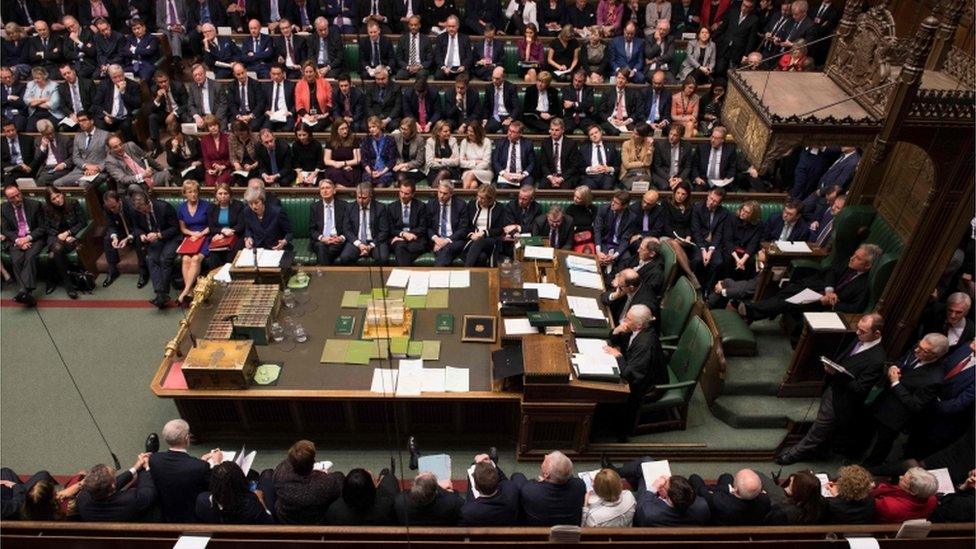
Is there a Commons majority for, well, anything?
Could a Commons majority be assembled for such a proposal? Should it? Should not the original mandate be respected, however problematic?
Is the prime minister right to suggest that a second referendum would further dent public trust in the political system? Or did that ship sail some time ago - and is now steaming vigorously over the horizon, at a rate of knots?
Finally, what might be the consequences of such a referendum? Would it produce a Remain majority, as its proponents suggest?
Or is the case that the most evident zeal is on the Leave side while many Remainers adopt that position as a question of balance, weighing up options? Might there thus be a differential turnout which tended to favour the Leave side?
In the event of a Remain vote, would the Leavers become quiescent? Or would they press for a further poll? For the best of three?
Questions mostly without, I freely concede, easy answers.
- Published17 December 2018
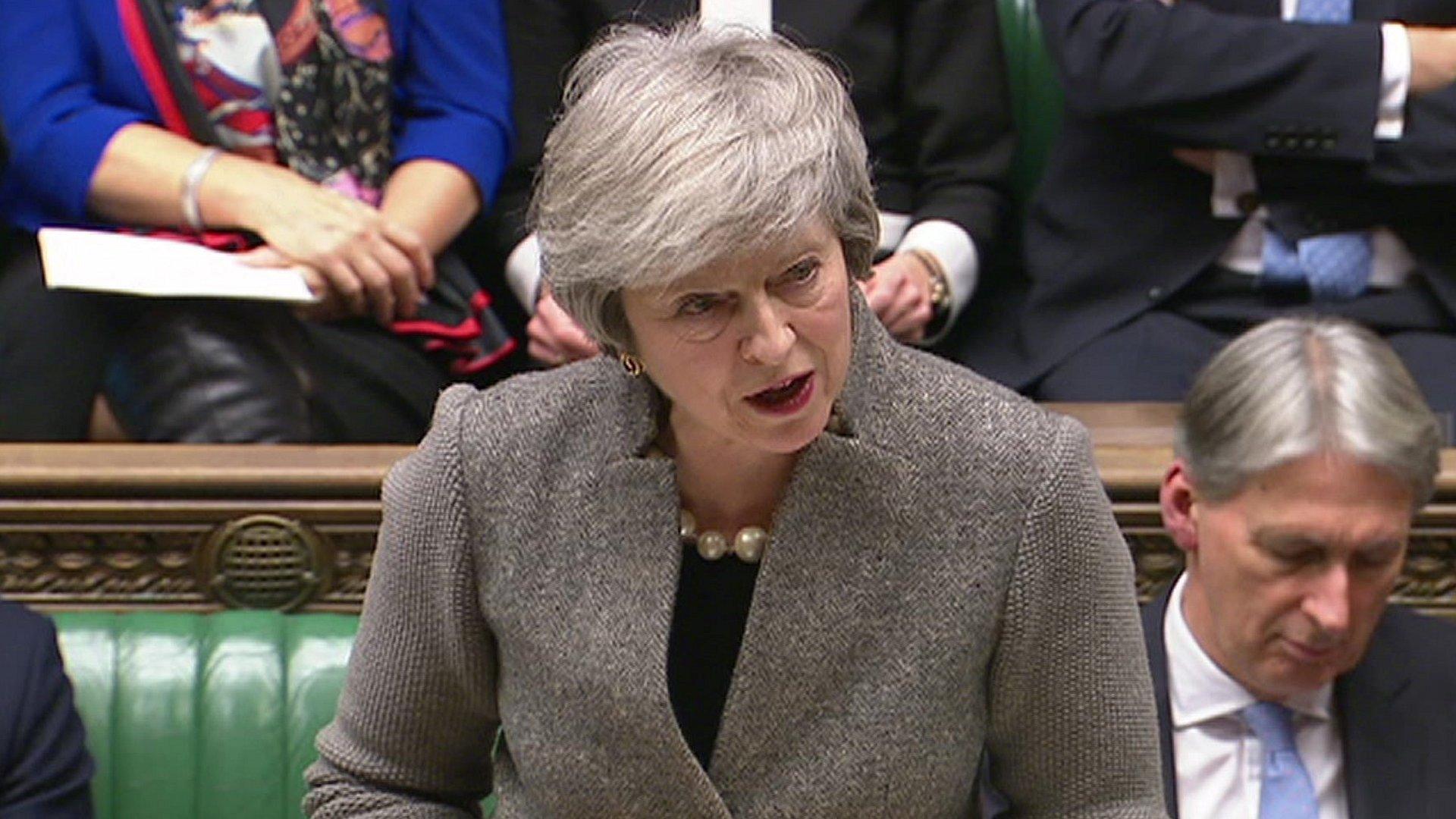
- Published17 December 2018
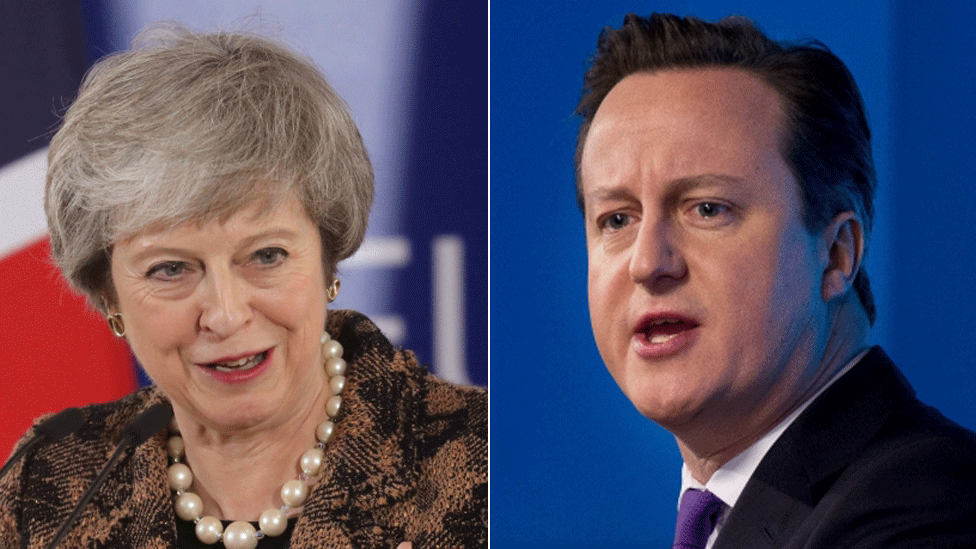
- Published16 December 2018
